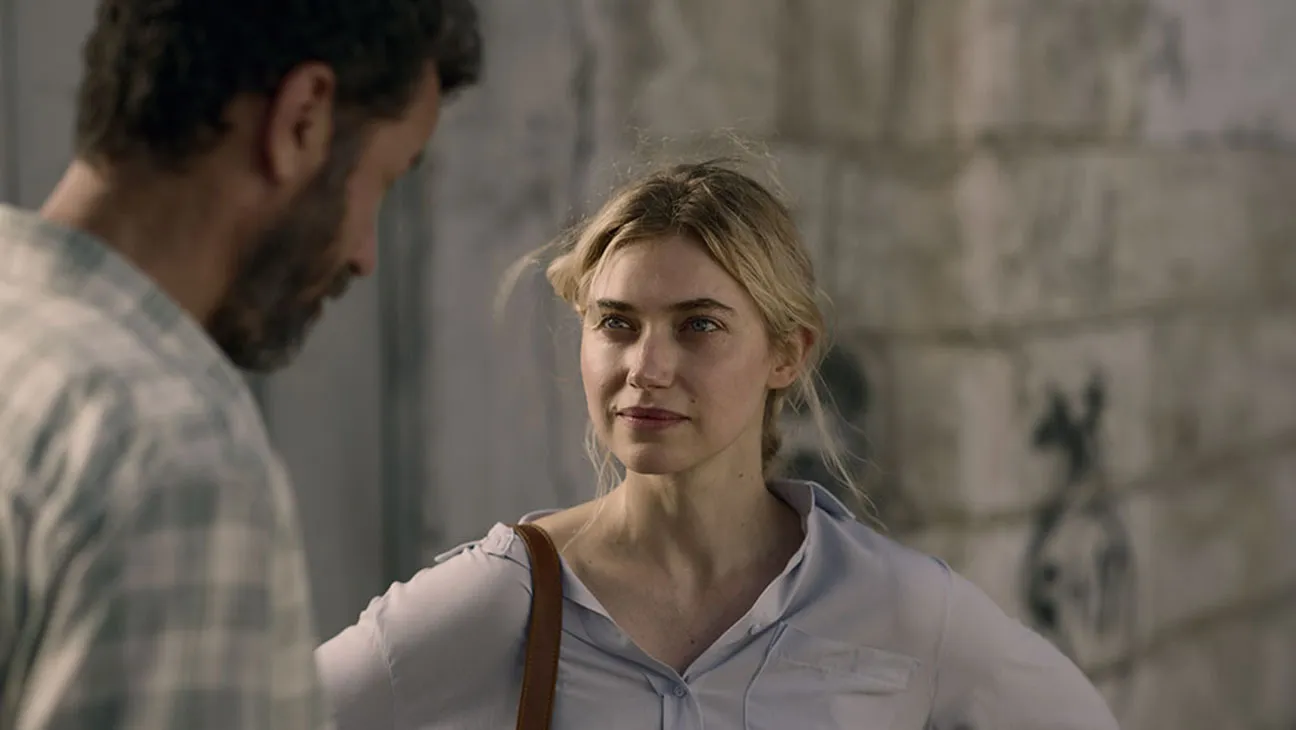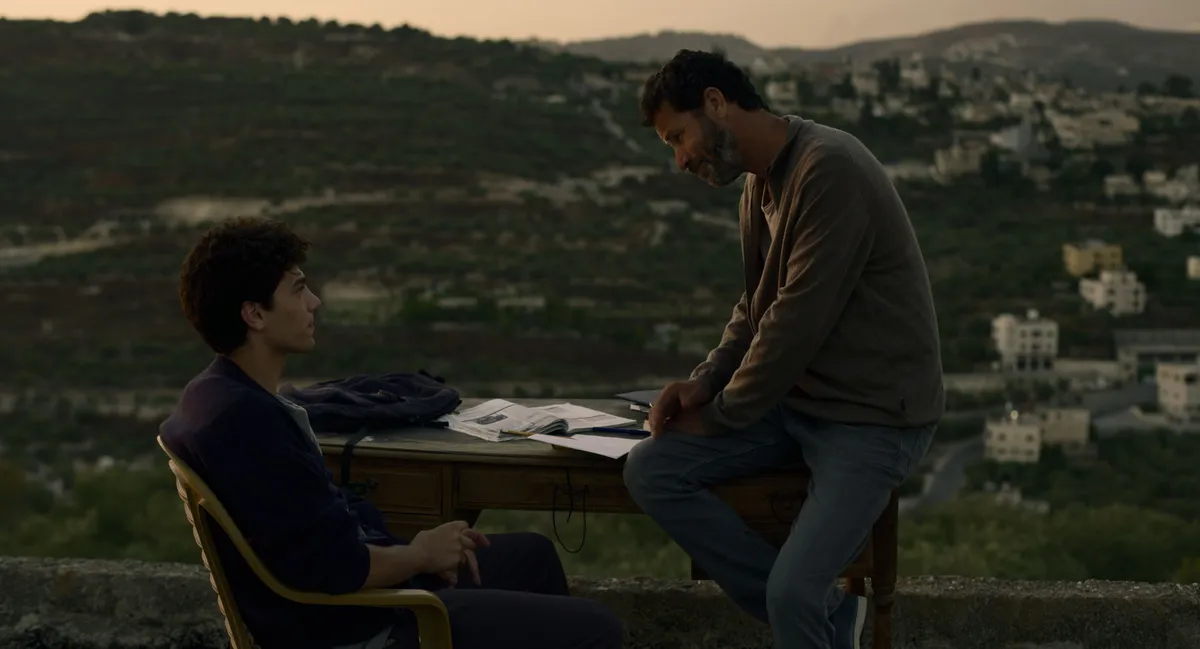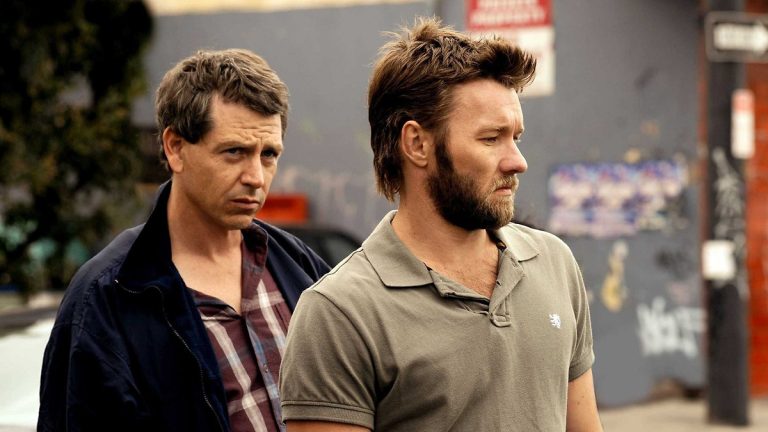A recurring image in “The Teacher” (2023) is a worn sofa in front of rubble from a recently demolished house; the family that lived there begged to be spared. It is an evocative, tragic image that became the simple yet effective poster for the film. Since its premiere in September 2023, the themes and ideas “The Teacher” chooses to explore have become increasingly relevant, although they were already important when it was released.
The first feature film directed by British-Palestinian filmmaker Farah Nabulsi, after her Bafta-winning short film “The Present” (2020), it follows Basem (Saleh Bakri, a recurring collaborator of Nabulsi’s), an English teacher in a town in the occupied West Bank who was once an important member of political resistance.
Despite being a work of fiction, the opening credits tell us this was “Inspired by true events.” If you saw the Oscar-winning documentary “No Other Land” (2024) or many videos posted by the residents of Gaza about the genocide they face, you will know that it is true. “The Teacher” does not have No Other Land’s visceral and raw footage, but it is focused and succeeds in its vision: of conveying the everyday life of Palestinians living in the West Bank, the systemic oppression and violence they face, and how that can push people to extreme ends. It is a deeply human film set against a backdrop of inhumane acts.
There is no sensationalised gore or blood in its moments of violence, and the results are quieter and deeply sinister. When it occurs, the violence is quick, but its impact plays out across the whole runtime. Most of which is spent on patient build-up, as the routes characters wish to take for justice are cut off one by one. Throughout the entire film, Nabulsi and her crew, including director of photography Gilles Porte, craft an oppressive atmosphere as the threat of settler violence and military raids hangs over the characters.

More Read: Tantura [2022] ‘Sundance’ Review: A Well-Crafted Documentary of Brutality Gone Unpunished
Israel is rarely named, but it does not need to be; its presence is everywhere in the film. Even in the moments of hope, there is still a worry in the back of the characters and the audience’s minds that this could all be brought to an abrupt, violent end. With fifteen minutes left, I did wonder how they were going to wrap everything up in a thematically satisfying way. Whilst a little rushed, the ending does succeed, and was a fantastic way to further interrogate and make the audience reflect on the one hour and fifty minutes they had just watched.
“To your people, your son is worth a thousand of mine” is a line spoken towards the end of the film, and is one that sums up its primary message and explorations of these people’s lives. There is no attempt made to find a middle ground. It is a film that is incredibly clear from the start about where its sympathies lie, as Basem drives to work past checkpoints, walls, and military vehicles on the side of the road. Once again, these are examples of the oppressive atmosphere the crew created.
Yet the film does not talk down to its audience. It simply uses the facts of Palestinian life to create a realistic situation to watch unfold. And the facts present a profound injustice. The events of the film are the natural culmination of the characters’ choices, which have been informed by the unjust world they have grown or are growing up in, and they are intended to make you wonder about what you would do if you were in their shoes. It is a testament to the power of cinema to break down barriers between cultures.

Also Related: The Encampments (2025) Documentary Review: A potent and powerful look at Columbia University’s Pro-Palestinian movement
The strongest performance is Bakri as Basem, both in the dialogue-heavy scenes and the quiet ones, where he can convey so much emotion through his eyes alone. At the core of the film is his bond with his student Adam (Muhammad Abed Elrahman), to whom he is a father figure. The second important relationship is his potential romance with British volunteer Lisa (Imogen Poots). During her first scene, I was unsure about Poots’s performance, but as the film progressed, she grew into the role and her character was given more to do. However, she does vanish for a chunk in the middle as events with Basem and Adam reach a crisis point.
Elrahman is also fantastic in a role that requires a wide emotional range. Had the performance felt off, the film would not be as effective. He is established early on as a secondary protagonist to Basem and has a great rapport with his elder brother, Yacoub (Mahmood Bakri), for the limited time he is on screen. In its mission to depict everyday life, the characters manage to feel like real people, with history, deep personal wounds, and complex relationships. This depth extends to the supporting cast, too. There is a side plot involving the abduction of an American-Israeli soldier whose parents, played by Stanley Townsend and Rachel Irvine, have flown in as the IDF ramps up efforts to rescue him as a Palestinian militia holds him for ransom.
For much of the runtime, they do not play a large role; however, the scenes in which they do feature slowly peel back the layers of desperation and a strained marriage that feels incredibly real. It is a film free of both Islamophobic and antisemitic tropes, as its focus does not need to fall back on hateful rhetoric. And once again, that helps it succeed at being a film full of human moments and riveting human drama.







![Operation Red Sea [2018]: An Uninspiring and Forgettable Film](https://79468c92.delivery.rocketcdn.me/wp-content/uploads/2018/10/Operation-Red-Sea-2-1600x900-c-default-768x432.jpg)